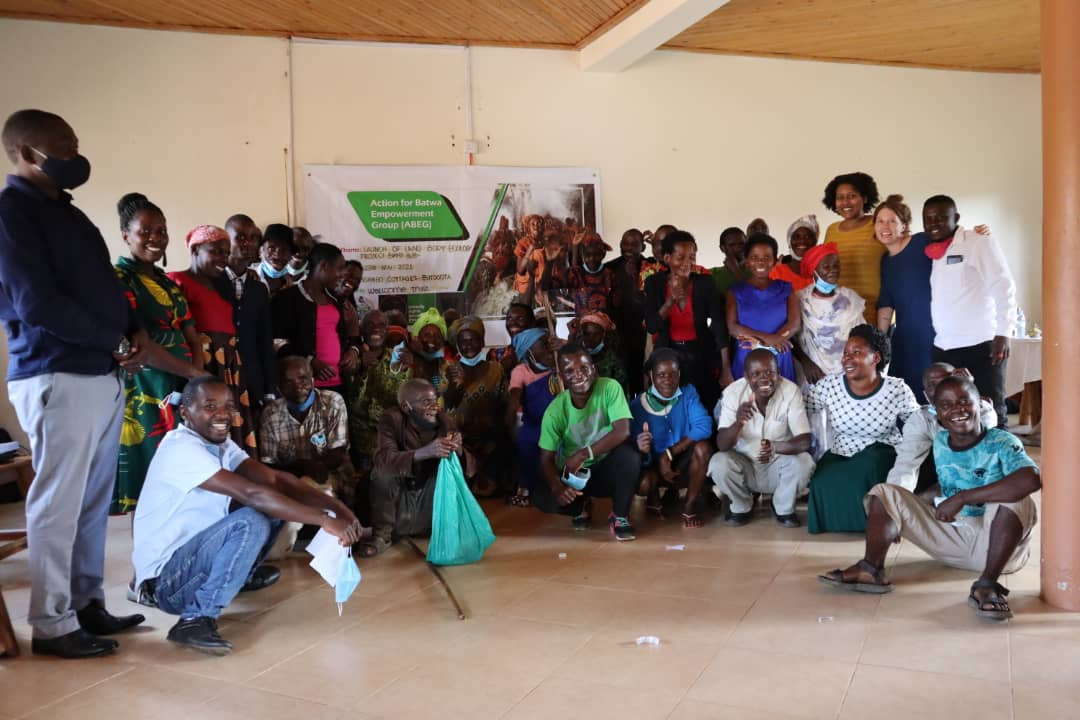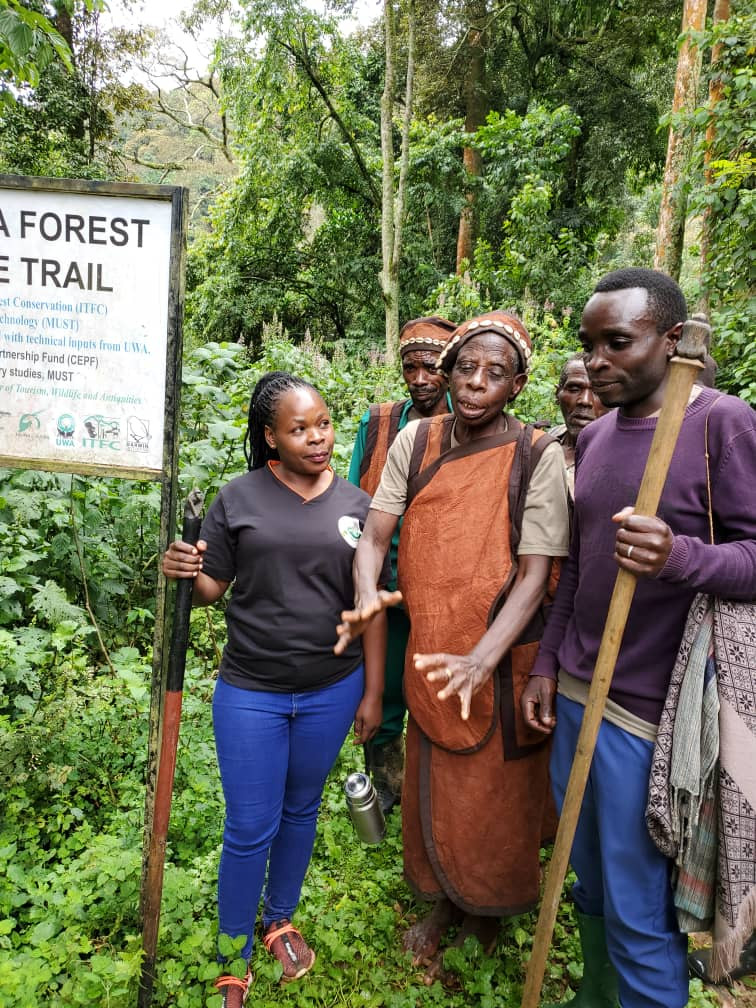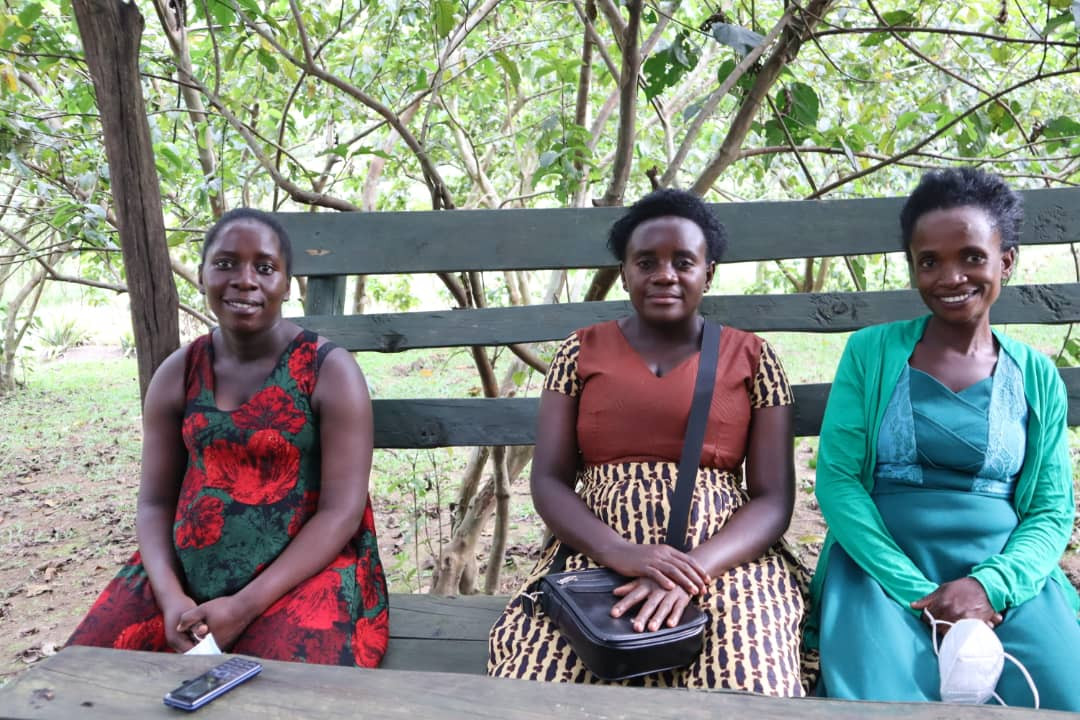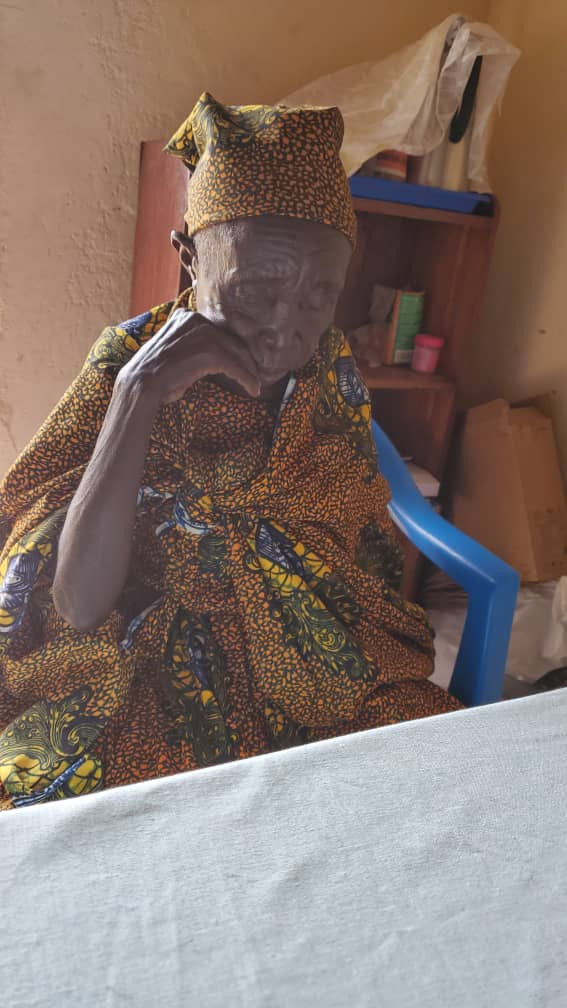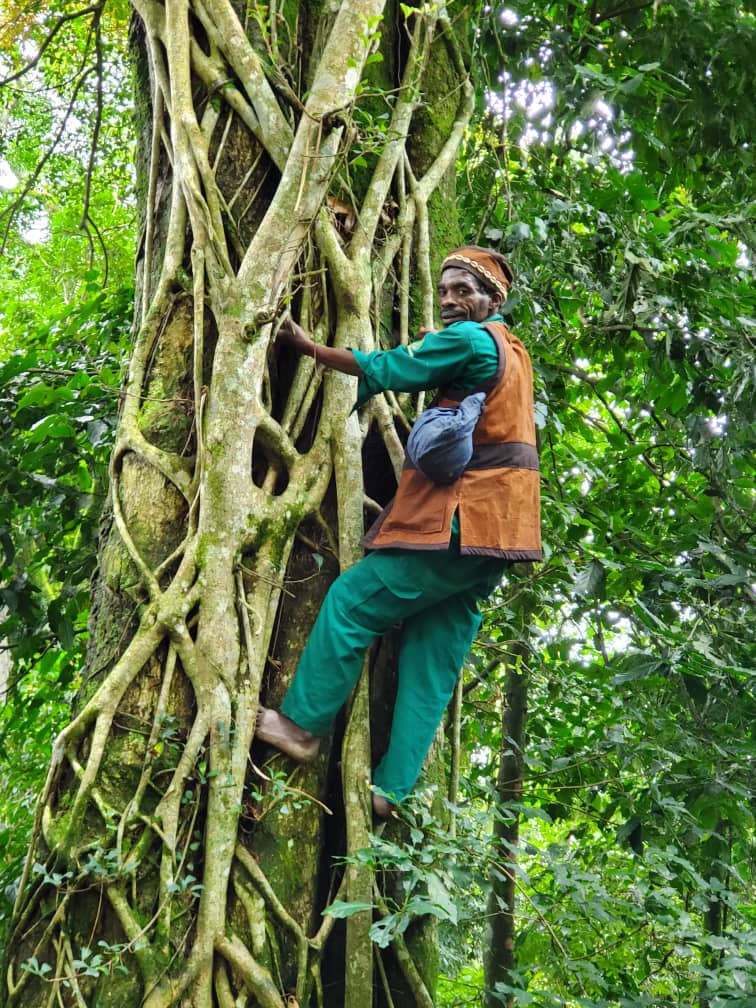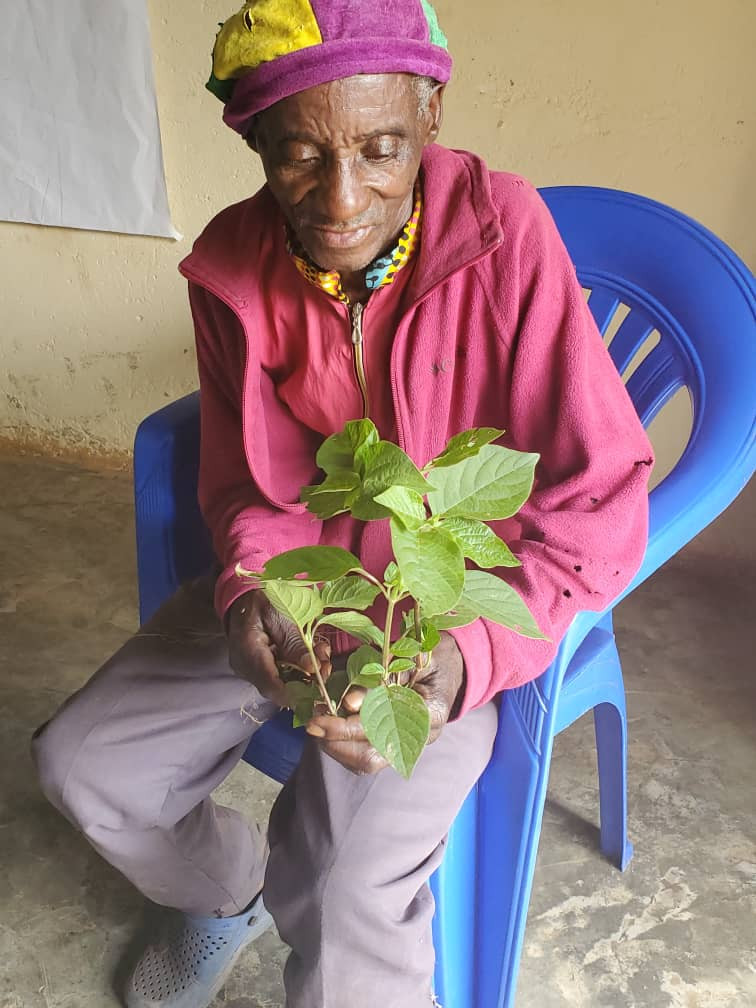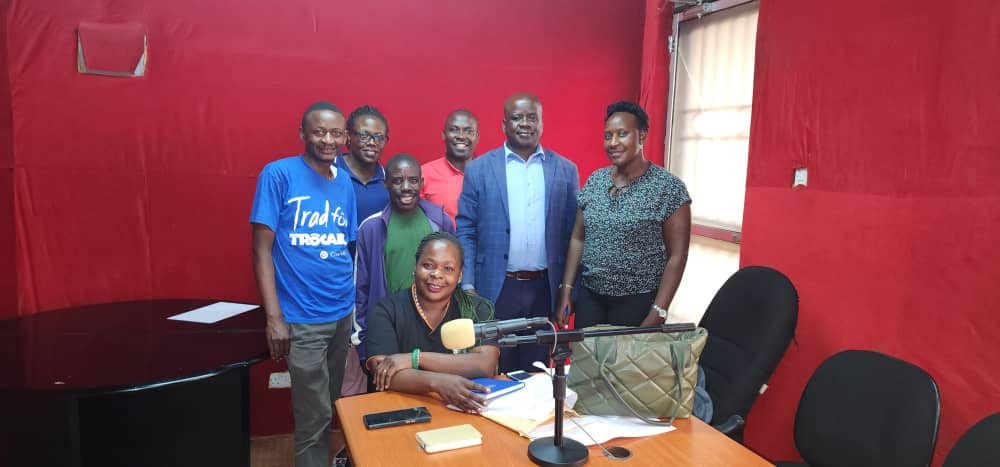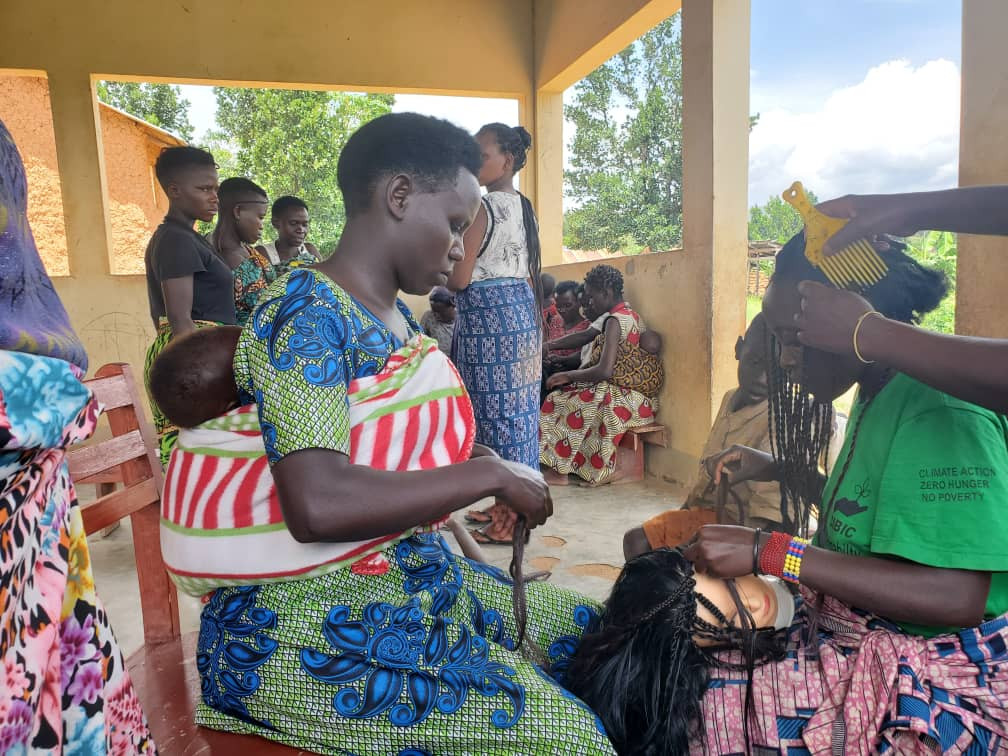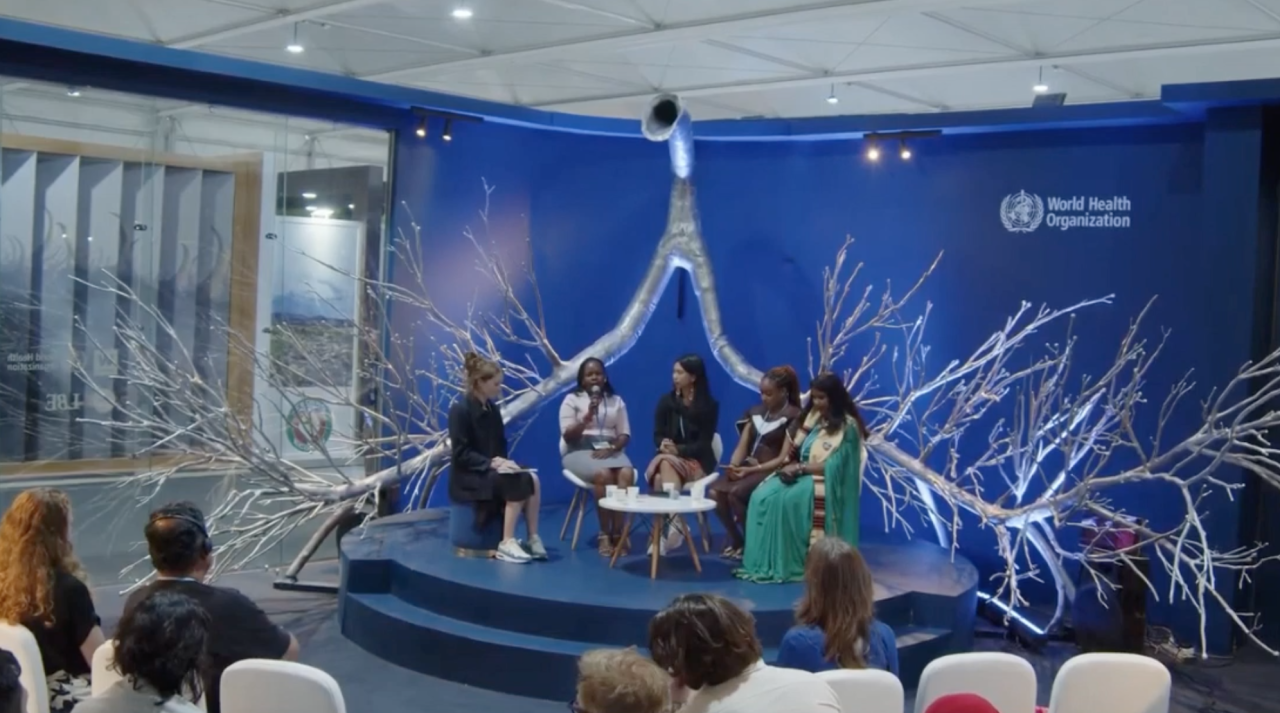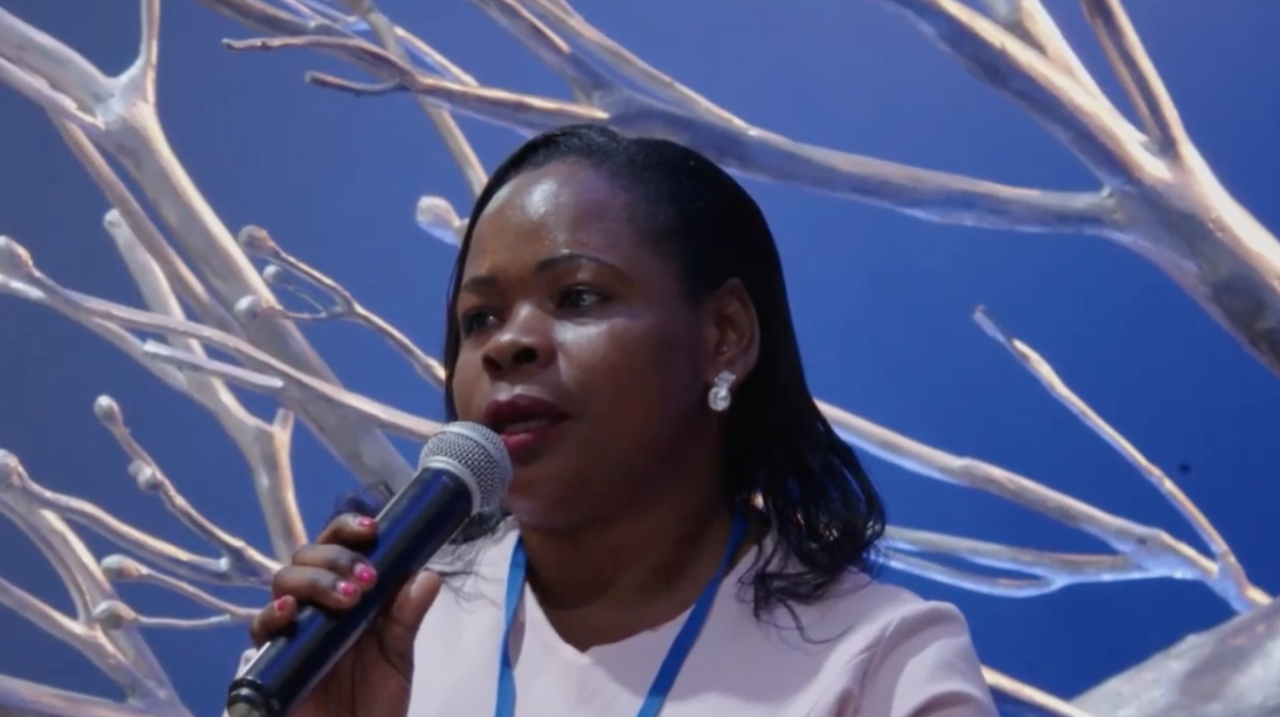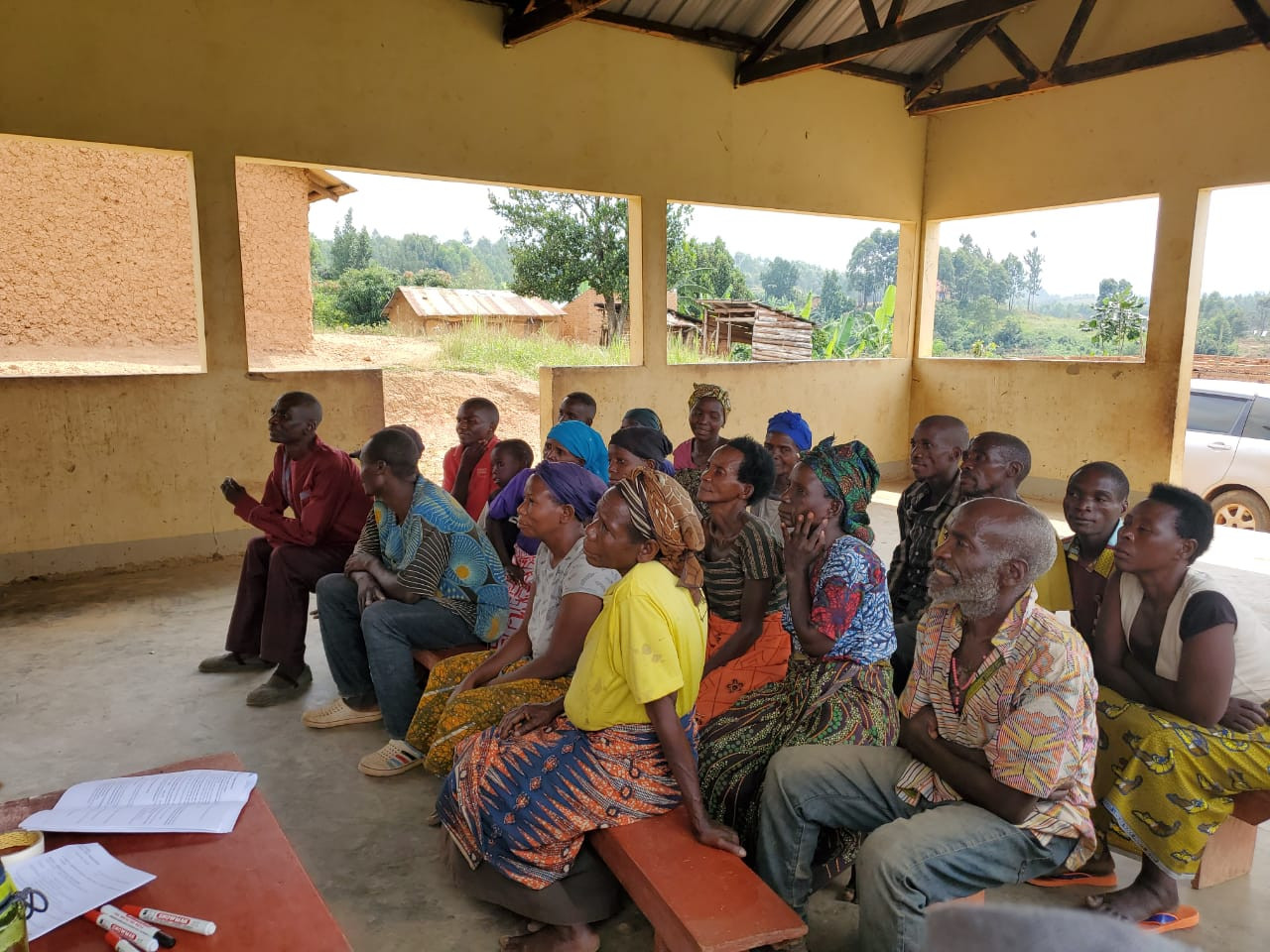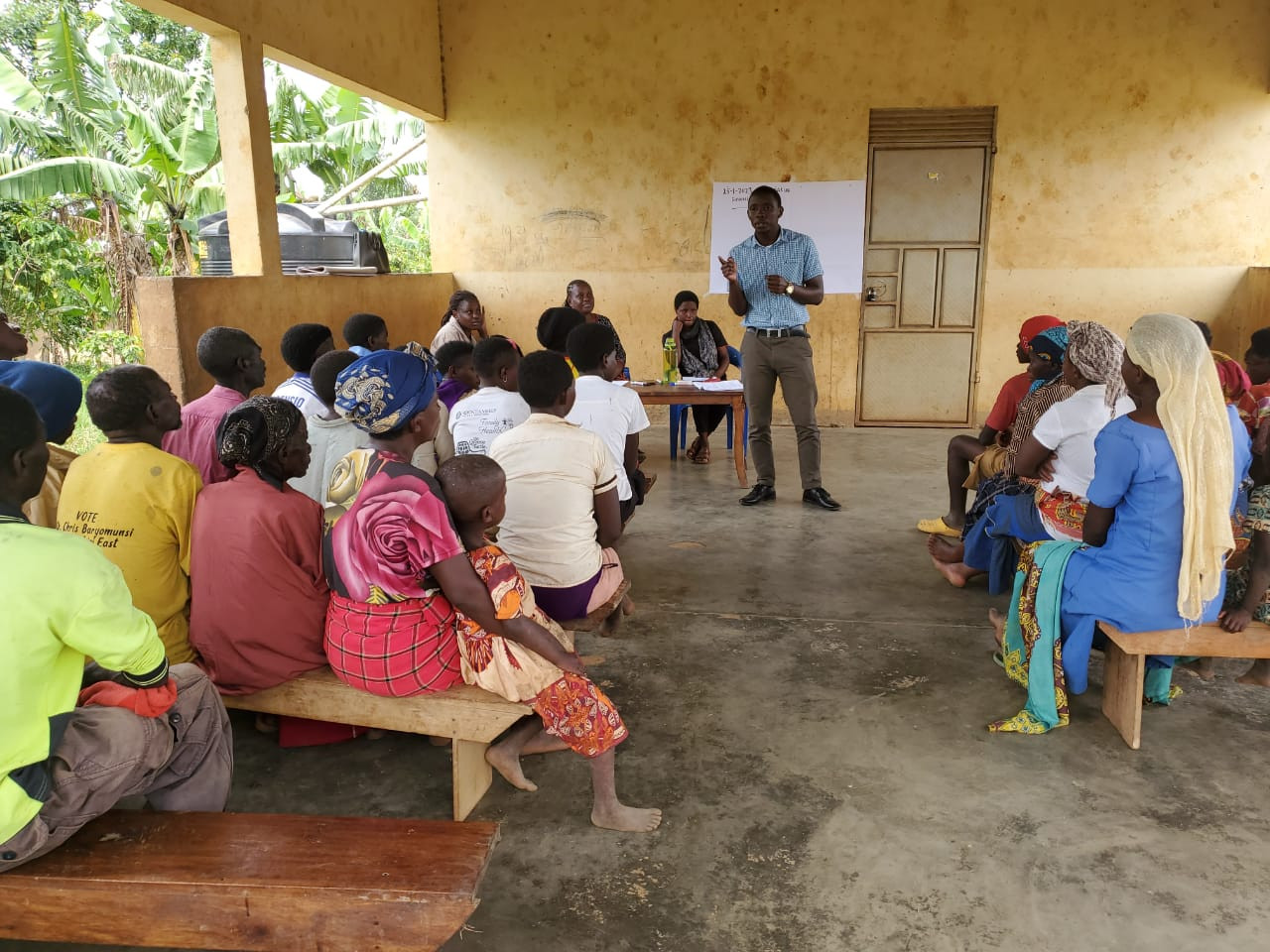Connecting the Dots with Sylvia Kokunda
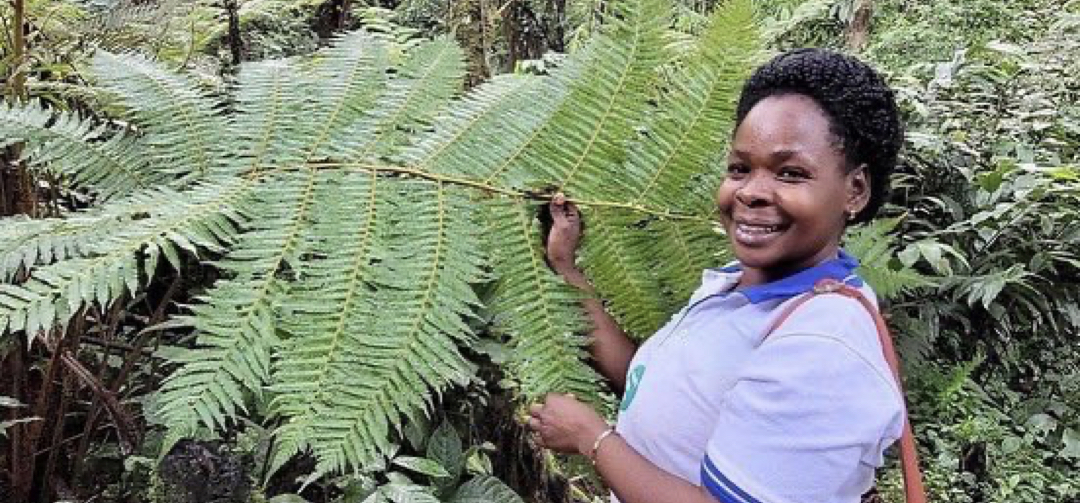
A conversation with the founder and executive director of Action for Batwa Empowerment Group, an Indigenous-led organization working to empower Batwa communities in Uganda.
Batwa communities in Uganda, Rwanda, and the DRC are clear examples of the devastating effects of fortress conservation, the colonial model for nature preservation that posits the mutual exclusion of nature and humans. Often, the designation of protected areas leads to the displacement of the very people responsible for stewarding that ecosystem—those who thrived in and relied on that land for their spiritual and physical sustenance.
In the Bwindi forest in 1991, wildlife conservation efforts pushed Batwa communities to the margins of Ugandan society. Unable to navigate this society, their marginalization deepened. And this very brief, abrupt, and violent chapter had devastating consequences for a people who had been thriving for millennia as forest dwellers.
The scarce existing statistics focusing on Batwa communities in Uganda – in the realms of education, health or financial resources – reflect an astounding level of social and economic marginalization. So much so that it becomes too easy to erase two aspects that are fundamental for a truthful narrative of the Batwa: Firstly, that this People not only survived but thrived in the forest through a profound and ancient knowledge system of resources for shelter, food and medicine that the forest provided for. Secondly, that the extreme marginalization of these communities has always been accompanied by the extraordinary resilience and tireless work of Batwa individuals and Batwa-led organizations fighting to better lives, reclaim their People’s rights and protect knowledge, culture and identity.
Azimuth has partnered with Batwa-led organizations in the past few years, and those experiences have made clear to us how Batwa voices must be recognized and heard on the global stage. Listening to testimonies by Batwa individuals leads to a profound and essential reflection on the history of colonialism in conservation, the structures and processes of colonization that are still ongoing, and the devastating effects they have had and continue to have. But most of all, to stories that are about the future, what they are doing to overcome challenges, and their dreams of prospering amidst enormous adversity.
We are honored to have Sylvia Kokunda as our latest guest on Connecting the Dots. Sylvia, a Batwa leader, is the founder and Chief Executive Officer of Action for Batwa Empowerment Group, a non-profit Ugandan organization working to empower the Batwa. After completing a bachelor’s degree in Public Administration and Management and a Master of Arts in Organisational Leadership and Management, Sylvia decided to commit her life to representing her community at national, regional, and international human rights forums, where she has boldly spoken out against the unbearable injustices that the Batwa continue to suffer under the Ugandan government’s watch. Her organization’s projects empower the Batwa community through advocacy, education, skills development, healthcare, commercial agriculture, tourism and research to holistically transform their lives and culture for a prosperous future. Action for Batwa Empowerment Group also engages with several national and international stakeholders to find a comprehensive approach and solutions that address the challenges the Batwa face.
Play the video version below (English subtitles available), or scroll down for the podcast version and the transcript.
CONNECTING THE DOTS – PODCAST
Are you a podcast fan? Make sure you subscribe to the podcast version of our Connecting the Dots series here.
ENGLISH TRANSCRIPT
MARIANA MARQUES (PRESIDENT, AZIMUTH WORLD FOUNDATION)
An important starting point for our conversation today is to hear in your own terms about the Batwa community you come from, its culture, history and the marginalization it has experienced since eviction. We know this is an impossibly vast question, but please give us an overview and tell us how that experience led you to found Action for Batwa Empowerment Group.
SYLVIA KOKUNDA
I’m from the Batwa community, which is one of the Indigenous communities in Uganda. The Batwa, we are original dwellers of the forest. Our culture, our survival, our sustainability, all our life depended on the forest. In terms of food, shelter, medicinal and also spiritual worship, all these depended on the forest.
And in 1991, the forest was gazetted by the Government of Uganda to protect the endangered mountain gorillas. The mountain gorillas, which stayed within the forest, were protected over the human beings. And the Batwa, we were forcibly evicted without free, prior and informed consent.
We were never given an alternative way of living, and we also became squatters on other people’s land. Because when we were evicted, we had to squat on the margins of the forest, working as casual labourers, or working on other people’s farms to earn a living and for survival. We started facing, and we are still facing, economical, sociopolitical and environmental marginalization.
That led to the formation of ABEG, Action for Batwa Empowerment Group, to empower the Batwa people, to amplify their voices and speak for their own rights. Because we could not stand there in that state we continued to face, at the gaze of the government which evicted us out of the forest, and which never compensated us to have another place where we can live.
Now, through this, we empower the Batwa, through advocacy, and also economic empowerment, research and many other things. That is what we do as ABEG, which is one of the organizations that is Batwa-founded and Batwa-led.
Credits: Action for Batwa Empowerment Group
MARIANA MARQUES
And how does Ugandan society perceive the Batwa’s history and current situation, and to what extent are Batwa voices shaping the national discourse on these issues?
SYLVIA KOKUNDA
Ugandan society perceives the Batwa as the poorest of the poor, very inferior, ignorant. Because having no land, having no access to education, no access to health services and other things, makes us more vulnerable, which has continued to make us more marginalized.
But it takes one’s commitment and courage to start and build something. In the same way, Action for Batwa Empowerment Group started so that it can amplify the Batwa voices, and also make sure that we can partner and lobby with the government people, even the societies, to make sure that the voice of the Batwa community can be heard.
However much, we have faced some opposition challenges by organizations that provide the same services, who claim that they are helping the Batwa. In actual sense, yet, they are taking more advantage of the Batwa people.
The Batwa-led organization and Batwa-founded organization, it’s kind of unique, in that we cannot take advantage of our communities. When you’re a Batwa, or when you’re a person and you’re having a pain, you’re feeling a pain, you are the one that knows how you’re paining, or how deep that pain is.
Credits: Action for Batwa Empowerment Group
MARIANA MARQUES
Fortress conservation has contributed to the erasure of the Batwa’s history as a thriving Forest People. Can you elaborate on the wealth of knowledge and resourcefulness that characterized these communities when they lived in the forest?
SYLVIA KOKUNDA
The Batwa, we are first with conservation knowledge. In terms of harvest, for example. Because we are hunter gatherers and food gatherers, we don’t uproot all the things, we don’t take down all the trees. We would just remove food on the side of the roots. Afterwards, when we would see that the food was almost done or that it wasn’t enough in the place where we were staying, we would move to another place, to still give room for this place to grow more food.
We also have knowledge on medicinal herbs. We are our own doctors, we are our own nurses, and also midwives. We knew every plant had a different meaning, we knew every class that was dangerous or harmful to our bodies, and the ones that were very helpful to our lives in terms of herbal medicines.
We had a culture of basket weaving, and in weaving our baskets we could dye the raffia with different herbal leaves, with different trees, plants, to make sure that we get different colors to beautify our baskets. We would use these baskets in our place and also for keeping our food, when we were staying in the forest.
Credits: Action for Batwa Empowerment Group
MARIANA MARQUES
With Minority Rights Group International and other local partners, you implemented a project called ‘From Disparity to Dignity: Realising Indigenous and Minority Rights in Development.’ This project studied access to education and health services in Uganda for Batwa communities and persons with disabilities, and it was used as the backbone for a national briefing on this topic. Can you tell us about some of the major findings of this study and if there have been notable impacts on healthcare practices, policy, or awareness?
SYLVIA KOKUNDA
With MRG, we had this survey of Batwa access to education and health. And one of our major findings was that the Batwa don’t access education and health because of long distances.
And more to that, in education, the Batwa don’t have food to eat at school. They also have no access to education materials, like books, uniforms.You can’t go to school when you don’t have a uniform, or when you’re putting on dirty clothes. And then you call that free education. In this so-called universal education, there are things you must pay for, which the Batwa cannot manage. The other students, they segregate them. They don’t want to sit with Batwa students because they are dirty, because they are smelling. And this makes the children hate school, and they don’t go back to school.
And more to that, when it comes to access to health, it is the same. There are long distances to access such services. And also there is unequal service provision. There is still a lot of marginalization, and the Batwa are served last after these other community members.
What we did after these findings, we tried to engage the government, stakeholders, even the health services, also conducting radio talk shows to make sure that we raise awareness about considering the Batwa as any other citizens of the country. At least some things have changed, however not all that much. There is one of the hospitals, the Bwindi Community Hospital in Kanungu, where at least now we have a large Batwa village team.
And in these schools, where some Batwa children go, at least there is less marginalization. They have tried to associate with them, and harassment has reduced. However much, this is not what we expect. We expect much more than this. We expect the Batwa to have access to education, to have government sponsorships, which they have not been getting, because of marginalization.
We also want to have health insurances for Batwa people, because we no longer access the forest where we used to get herbal medicines. And we don’t have money to access hospitals. So we request that the government provides health insurances to the Batwa people.
Credits: Action for Batwa Empowerment Group
MARIANA MARQUES
You’re also a part of Land Body Ecologies, a global transdisciplinary network and research group exploring the deep interconnections of mental and ecosystem health. How has this close work with researchers from other Indigenous communities facing similar challenges strengthened your local work?
SYLVIA KOKUNDA
Being part of Land Body Ecologies has helped ABEG in building networks. We are seeing there is a lot of visibility globally. And we have had exposure, as when I was in COP28, which is the second COP that I attended. This has led to experience sharing and learning.
Also, Land Body Ecologies has really helped us to produce one of the first Batwa-led research papers. Before, many people were coming to do research on the Batwa. But we were not part of the research. And now the Batwa have participated in research and produced their first research paper. This was a memorable experience for the Batwa and for ABEG.
Credits: Global Climate and Health Alliance
MARIANA MARQUES
Can you tell us about some of Action for Batwa Empowerment Group‘s most relevant projects so far, and what are some of the achievements and outcomes they produced?
SYLVIA KOKUNDA
Mainly ABEG advocates for the rights of the Batwa to access education, and does economic empowerment. And we have tried to raise our voices to speak for the rights of the Batwa people. And we have done research, which is also working as an advocacy tool for the Batwa communities. We have also held many stakeholders’ meetings with the government, and with other stakeholders, to make the Batwa valued citizens of the country.
We also do skilling and entrepreneurship, where we have provided younger Batwa women with skills that can help them earn a living. And we have also provided them with start up capital, also to earn a living. Because in the communities where we live, most of the Batwa young girls have been taken advantage of by non-Batwa, whereby they are impregnated. And the fathers of those children, they don’t take responsibility for their children. And you find we have very many young mothers who are single mothers, taking care of their children alone. So that is why we have empowered them with skills, and also gave them start up capital to start their small scale businesses, so that they can be able to look after their families and their children.
And we also have tried to give Batwa loans. Because the Batwa don’t have the capacity to go to banks and get loans to start up businesses. We have tried to secure them with some loans, to make sure that they can start their own projects and businesses, to look after their families.
And the fact is that the Batwa have been facing a lot of domestic violence. It is another one project we have done, to make sure that we can also reduce domestic violence.
Credits: Action for Batwa Empowerment Group
MARIANA MARQUES
And considering the challenges, do you foresee any possibility of the Batwa returning to their traditional forest lifestyle? What vision do you have for the future of Batwa communities in Uganda?
SYLVIA KOKUNDA
I see the government is silent on giving us the forest back. But my vision, my goal, is to make sure that the Batwa can have access to the forest again, and that we are able to practice our culture again.
If our culture is not practiced, we will lose our cultural identity in the future. Most especially the younger generation. They no longer practice our culture, and we cannot practice it when we are not in the forest, where most of our things were, where all our knowledge is.
We are the first conservationists of the forest, and there is no conservation without Indigenous Peoples, like the Batwa. We are stewards of the forest, and we know how to conserve it, such that we can keep our culture as Batwa people.
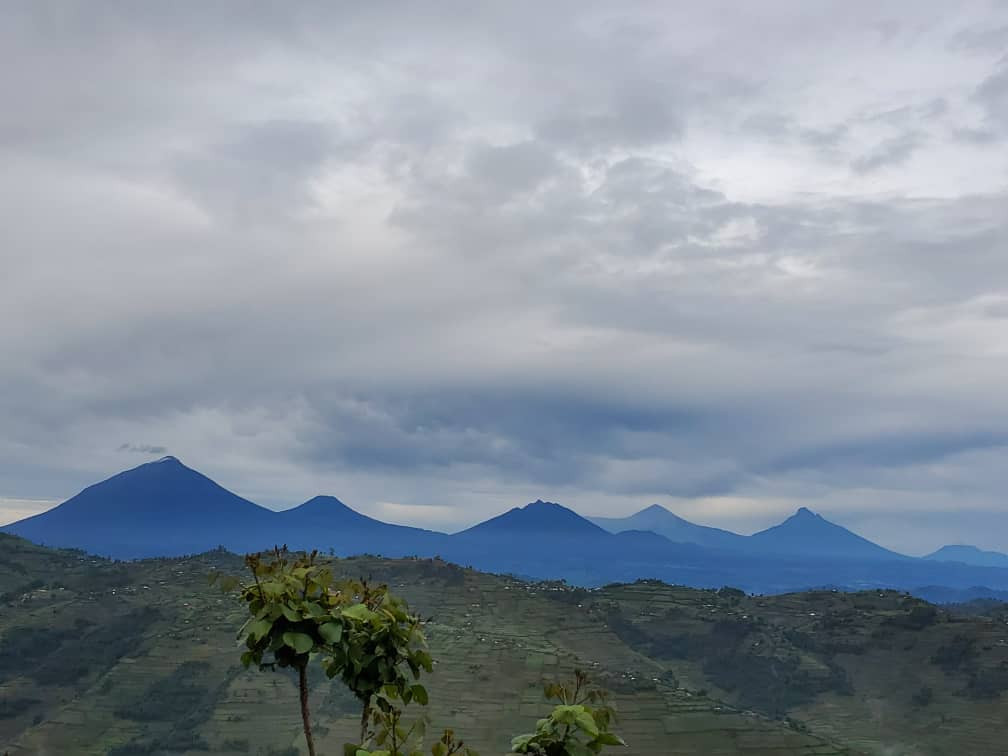
Credit: Action for Batwa Empowerment Group
External Link
Connecting the Dots with Sylvia Kokunda

A conversation with the founder and executive director of Action for Batwa Empowerment Group, an Indigenous-led organization working to empower Batwa communities in Uganda.
Batwa communities in Uganda, Rwanda, and the DRC are clear examples of the devastating effects of fortress conservation, the colonial model for nature preservation that posits the mutual exclusion of nature and humans. Often, the designation of protected areas leads to the displacement of the very people responsible for stewarding that ecosystem—those who thrived in and relied on that land for their spiritual and physical sustenance.
In the Bwindi forest in 1991, wildlife conservation efforts pushed Batwa communities to the margins of Ugandan society. Unable to navigate this society, their marginalization deepened. And this very brief, abrupt, and violent chapter had devastating consequences for a people who had been thriving for millennia as forest dwellers.
The scarce existing statistics focusing on Batwa communities in Uganda – in the realms of education, health or financial resources – reflect an astounding level of social and economic marginalization. So much so that it becomes too easy to erase two aspects that are fundamental for a truthful narrative of the Batwa: Firstly, that this People not only survived but thrived in the forest through a profound and ancient knowledge system of resources for shelter, food and medicine that the forest provided for. Secondly, that the extreme marginalization of these communities has always been accompanied by the extraordinary resilience and tireless work of Batwa individuals and Batwa-led organizations fighting to better lives, reclaim their People’s rights and protect knowledge, culture and identity.
Azimuth has partnered with Batwa-led organizations in the past few years, and those experiences have made clear to us how Batwa voices must be recognized and heard on the global stage. Listening to testimonies by Batwa individuals leads to a profound and essential reflection on the history of colonialism in conservation, the structures and processes of colonization that are still ongoing, and the devastating effects they have had and continue to have. But most of all, to stories that are about the future, what they are doing to overcome challenges, and their dreams of prospering amidst enormous adversity.
We are honored to have Sylvia Kokunda as our latest guest on Connecting the Dots. Sylvia, a Batwa leader, is the founder and Chief Executive Officer of Action for Batwa Empowerment Group, a non-profit Ugandan organization working to empower the Batwa. After completing a bachelor’s degree in Public Administration and Management and a Master of Arts in Organisational Leadership and Management, Sylvia decided to commit her life to representing her community at national, regional, and international human rights forums, where she has boldly spoken out against the unbearable injustices that the Batwa continue to suffer under the Ugandan government’s watch. Her organization’s projects empower the Batwa community through advocacy, education, skills development, healthcare, commercial agriculture, tourism and research to holistically transform their lives and culture for a prosperous future. Action for Batwa Empowerment Group also engages with several national and international stakeholders to find a comprehensive approach and solutions that address the challenges the Batwa face.
Play the video version below (English subtitles available), or scroll down for the podcast version and the transcript.
CONNECTING THE DOTS – PODCAST
Are you a podcast fan? Make sure you subscribe to the podcast version of our Connecting the Dots series here.
ENGLISH TRANSCRIPT
MARIANA MARQUES (PRESIDENT, AZIMUTH WORLD FOUNDATION)
An important starting point for our conversation today is to hear in your own terms about the Batwa community you come from, its culture, history and the marginalization it has experienced since eviction. We know this is an impossibly vast question, but please give us an overview and tell us how that experience led you to found Action for Batwa Empowerment Group.
SYLVIA KOKUNDA
I’m from the Batwa community, which is one of the Indigenous communities in Uganda. The Batwa, we are original dwellers of the forest. Our culture, our survival, our sustainability, all our life depended on the forest. In terms of food, shelter, medicinal and also spiritual worship, all these depended on the forest.
And in 1991, the forest was gazetted by the Government of Uganda to protect the endangered mountain gorillas. The mountain gorillas, which stayed within the forest, were protected over the human beings. And the Batwa, we were forcibly evicted without free, prior and informed consent.
We were never given an alternative way of living, and we also became squatters on other people’s land. Because when we were evicted, we had to squat on the margins of the forest, working as casual labourers, or working on other people’s farms to earn a living and for survival. We started facing, and we are still facing, economical, sociopolitical and environmental marginalization.
That led to the formation of ABEG, Action for Batwa Empowerment Group, to empower the Batwa people, to amplify their voices and speak for their own rights. Because we could not stand there in that state we continued to face, at the gaze of the government which evicted us out of the forest, and which never compensated us to have another place where we can live.
Now, through this, we empower the Batwa, through advocacy, and also economic empowerment, research and many other things. That is what we do as ABEG, which is one of the organizations that is Batwa-founded and Batwa-led.
Credits: Action for Batwa Empowerment Group
MARIANA MARQUES
And how does Ugandan society perceive the Batwa’s history and current situation, and to what extent are Batwa voices shaping the national discourse on these issues?
SYLVIA KOKUNDA
Ugandan society perceives the Batwa as the poorest of the poor, very inferior, ignorant. Because having no land, having no access to education, no access to health services and other things, makes us more vulnerable, which has continued to make us more marginalized.
But it takes one’s commitment and courage to start and build something. In the same way, Action for Batwa Empowerment Group started so that it can amplify the Batwa voices, and also make sure that we can partner and lobby with the government people, even the societies, to make sure that the voice of the Batwa community can be heard.
However much, we have faced some opposition challenges by organizations that provide the same services, who claim that they are helping the Batwa. In actual sense, yet, they are taking more advantage of the Batwa people.
The Batwa-led organization and Batwa-founded organization, it’s kind of unique, in that we cannot take advantage of our communities. When you’re a Batwa, or when you’re a person and you’re having a pain, you’re feeling a pain, you are the one that knows how you’re paining, or how deep that pain is.
Credits: Action for Batwa Empowerment Group
MARIANA MARQUES
Fortress conservation has contributed to the erasure of the Batwa’s history as a thriving Forest People. Can you elaborate on the wealth of knowledge and resourcefulness that characterized these communities when they lived in the forest?
SYLVIA KOKUNDA
The Batwa, we are first with conservation knowledge. In terms of harvest, for example. Because we are hunter gatherers and food gatherers, we don’t uproot all the things, we don’t take down all the trees. We would just remove food on the side of the roots. Afterwards, when we would see that the food was almost done or that it wasn’t enough in the place where we were staying, we would move to another place, to still give room for this place to grow more food.
We also have knowledge on medicinal herbs. We are our own doctors, we are our own nurses, and also midwives. We knew every plant had a different meaning, we knew every class that was dangerous or harmful to our bodies, and the ones that were very helpful to our lives in terms of herbal medicines.
We had a culture of basket weaving, and in weaving our baskets we could dye the raffia with different herbal leaves, with different trees, plants, to make sure that we get different colors to beautify our baskets. We would use these baskets in our place and also for keeping our food, when we were staying in the forest.
Credits: Action for Batwa Empowerment Group
MARIANA MARQUES
With Minority Rights Group International and other local partners, you implemented a project called ‘From Disparity to Dignity: Realising Indigenous and Minority Rights in Development.’ This project studied access to education and health services in Uganda for Batwa communities and persons with disabilities, and it was used as the backbone for a national briefing on this topic. Can you tell us about some of the major findings of this study and if there have been notable impacts on healthcare practices, policy, or awareness?
SYLVIA KOKUNDA
With MRG, we had this survey of Batwa access to education and health. And one of our major findings was that the Batwa don’t access education and health because of long distances.
And more to that, in education, the Batwa don’t have food to eat at school. They also have no access to education materials, like books, uniforms.You can’t go to school when you don’t have a uniform, or when you’re putting on dirty clothes. And then you call that free education. In this so-called universal education, there are things you must pay for, which the Batwa cannot manage. The other students, they segregate them. They don’t want to sit with Batwa students because they are dirty, because they are smelling. And this makes the children hate school, and they don’t go back to school.
And more to that, when it comes to access to health, it is the same. There are long distances to access such services. And also there is unequal service provision. There is still a lot of marginalization, and the Batwa are served last after these other community members.
What we did after these findings, we tried to engage the government, stakeholders, even the health services, also conducting radio talk shows to make sure that we raise awareness about considering the Batwa as any other citizens of the country. At least some things have changed, however not all that much. There is one of the hospitals, the Bwindi Community Hospital in Kanungu, where at least now we have a large Batwa village team.
And in these schools, where some Batwa children go, at least there is less marginalization. They have tried to associate with them, and harassment has reduced. However much, this is not what we expect. We expect much more than this. We expect the Batwa to have access to education, to have government sponsorships, which they have not been getting, because of marginalization.
We also want to have health insurances for Batwa people, because we no longer access the forest where we used to get herbal medicines. And we don’t have money to access hospitals. So we request that the government provides health insurances to the Batwa people.
Credits: Action for Batwa Empowerment Group
MARIANA MARQUES
You’re also a part of Land Body Ecologies, a global transdisciplinary network and research group exploring the deep interconnections of mental and ecosystem health. How has this close work with researchers from other Indigenous communities facing similar challenges strengthened your local work?
SYLVIA KOKUNDA
Being part of Land Body Ecologies has helped ABEG in building networks. We are seeing there is a lot of visibility globally. And we have had exposure, as when I was in COP28, which is the second COP that I attended. This has led to experience sharing and learning.
Also, Land Body Ecologies has really helped us to produce one of the first Batwa-led research papers. Before, many people were coming to do research on the Batwa. But we were not part of the research. And now the Batwa have participated in research and produced their first research paper. This was a memorable experience for the Batwa and for ABEG.
Credits: Global Climate and Health Alliance
MARIANA MARQUES
Can you tell us about some of Action for Batwa Empowerment Group‘s most relevant projects so far, and what are some of the achievements and outcomes they produced?
SYLVIA KOKUNDA
Mainly ABEG advocates for the rights of the Batwa to access education, and does economic empowerment. And we have tried to raise our voices to speak for the rights of the Batwa people. And we have done research, which is also working as an advocacy tool for the Batwa communities. We have also held many stakeholders’ meetings with the government, and with other stakeholders, to make the Batwa valued citizens of the country.
We also do skilling and entrepreneurship, where we have provided younger Batwa women with skills that can help them earn a living. And we have also provided them with start up capital, also to earn a living. Because in the communities where we live, most of the Batwa young girls have been taken advantage of by non-Batwa, whereby they are impregnated. And the fathers of those children, they don’t take responsibility for their children. And you find we have very many young mothers who are single mothers, taking care of their children alone. So that is why we have empowered them with skills, and also gave them start up capital to start their small scale businesses, so that they can be able to look after their families and their children.
And we also have tried to give Batwa loans. Because the Batwa don’t have the capacity to go to banks and get loans to start up businesses. We have tried to secure them with some loans, to make sure that they can start their own projects and businesses, to look after their families.
And the fact is that the Batwa have been facing a lot of domestic violence. It is another one project we have done, to make sure that we can also reduce domestic violence.
Credits: Action for Batwa Empowerment Group
MARIANA MARQUES
And considering the challenges, do you foresee any possibility of the Batwa returning to their traditional forest lifestyle? What vision do you have for the future of Batwa communities in Uganda?
SYLVIA KOKUNDA
I see the government is silent on giving us the forest back. But my vision, my goal, is to make sure that the Batwa can have access to the forest again, and that we are able to practice our culture again.
If our culture is not practiced, we will lose our cultural identity in the future. Most especially the younger generation. They no longer practice our culture, and we cannot practice it when we are not in the forest, where most of our things were, where all our knowledge is.
We are the first conservationists of the forest, and there is no conservation without Indigenous Peoples, like the Batwa. We are stewards of the forest, and we know how to conserve it, such that we can keep our culture as Batwa people.

Credit: Action for Batwa Empowerment Group
External Link


